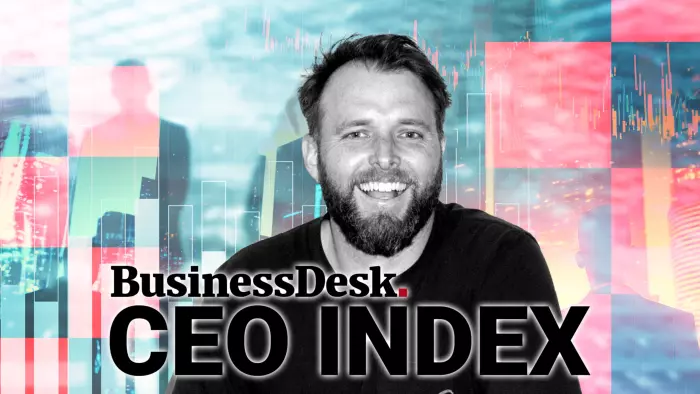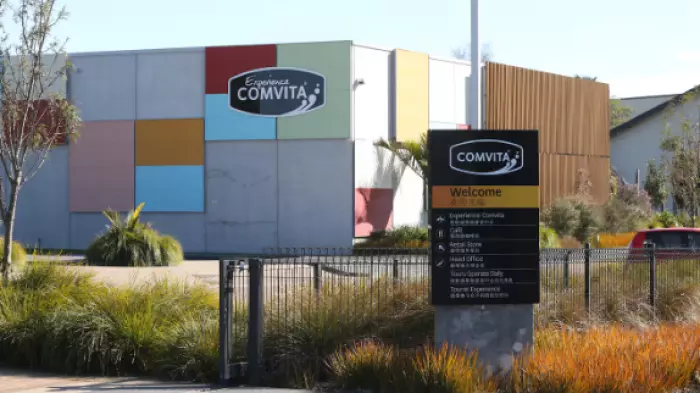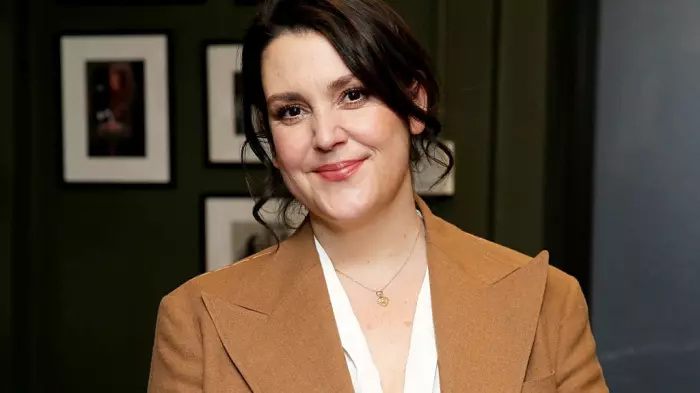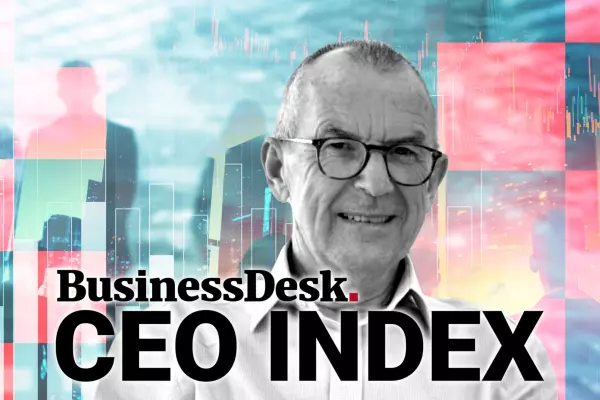The whirlwind growth of brand-tracking platform Tracksuit has brought CEO Connor Archbold into the spotlight.
The business, which he started with co-founder Matt Herbert in 2021, is doubling or tripling in size every year, he says.
“We founded Tracksuit in May 2021, and we’ve become one of New Zealand’s fastest-growing companies ever,” says Archbold, who has more than 15 years of experience building software-as-a-service (SaaS) and marketing technology ventures, with a broad international outlook.
Tracksuit, which has a growing reputation among agencies and major brands, helps marketers to understand how people really feel about their brand, tracking awareness and consideration over time.
Serial entrepreneur
The company says its methods prove the value of brand building with clear, accessible data. It claims to answer the critical question for marketers: “Is my strategy working?”
Archbold is a shortlisted finalist in the startup sector of BusinessDesk’s inaugural CEO Index.
Our independent panel of judges says: “Connor Archbold is a living example that it's possible to be incredibly ambitious, get traction and be a good human. And Tracksuit has gone global, really quickly.
“Tracksuit brings a ‘kiwiness' to its whole modus operandi. It puts the team first, and its employee share programme gives the strong essence of a Kiwi stake in the company.”
Serial entrepreneur Archbold, a former corporate lawyer who at one time ran a surf and yoga retreat with his wife on the beach in Nicaragua, is known for creating a culture of “kind, hungry and brilliant” at the startup, according to BusinessDesk tech columnist Peter Griffin.
Falling in love
Matt Herbert, who's now based in the UK, told Griffin earlier this month: "If I could sum Connor up, he's got an incredible knack for making people fall in love with what he's doing, whether that's bringing on great hires and great teams, or what Connor has been able to do with our investor relationships and the raising of capital.
"Connor's ability to make people fall in love with Tracksuit, and the way that we've been able to partner with and raise money over the last four and a half years from phenomenal groups, and have a really, really good group of people and investors around us – I think Connor does that better than anybody I've seen."
Long-term marketing tactics
Griffin says Archbold’s strategy has been to disrupt traditional brand research by providing accessibly priced, software-driven brand tracking for thousands of brands.
In June, when the business raised $42 million for global expansion, Archbold said: “Before Tracksuit existed, it would cost $100,000 to $200,000 to get a brand-tracking study done. Now it’s $20,000, and so a new type of business is able to invest in long-term marketing tactics.”
Tracksuit is currently working with 1000 business customers and 10,000 brands.
BusinessDesk asked Archbold about his approach to our judges’ key CEO Index criteria: vision, impact, innovation, resilience, and influence.
Vision: From day one, Tracksuit has always had the same purpose and vision, and Archbold tries to repeat this as often as possible: “Our purpose is to prove that great brands build great businesses, and our vision is to get Tracksuit data into every boardroom."
He says he has learned that he can never repeat these goals enough to his team. “It’s incredibly important to connect the work of individuals in your team to your purpose and vision as a leader.”
When Tracksuit was a smaller team with fewer than 50 employees, this was relatively simple because this connection happened through one-on-one conversations.
“We’ve always over-invested time, energy, and resources into connection. I intentionally created time in my calendar for walks and coffees with folks from all corners of the business to repeat these messages over and over again.”
Now, with 200 people across five time zones, Archbold has had to find other ways, making these messages the background on Tracksuit computer screens. He is recording a weekly video with the chief of staff to drive a core message home to its team.
It is also in the company culture, in how Tracksuit celebrates customer wins when their brand investments pay off, says the CEO.
Impact: Four years in, Tracksuit has staff in 24 countries, it’s bringing in tens of millions of dollars in revenue, and it has more than 1000 business customers, including many global household-name brands, says Archbold.
Growth and product are always what Tracksuit is known for, he says, but it’s the company’s culture of “high care” and “high performance” that he’s most proud of.
“This cultural work shows up in our team engagement scores, our high employee retention rate, and our diversity, equity, and inclusion metrics."
Meanwhile, Tracksuit’s goal of impact for customers is that businesses that use Tracksuit grow more than businesses that don’t use it.
Innovation: Rather than one "eureka moment", Tracksuit’s innovation is more about constant improvement and first-principles thinking, says Archbold.
He says he has an operating principle that asks the team to always find global best practice, to improve it, and “make it Tracksuity”.
“We realised early on that to solve the old, clunky problem of brand tracking, we needed a new way of working. So we’ve tried to build a culture where everyone has permission to experiment, to launch, learn, and iterate quickly.”
As the business leader, Archbold says, he tries to bring energy and clarity at the outset, setting the destination – the purpose, vision, and strategy – and then getting out of the way.
“At Tracksuit, we are not innovating for innovation’s sake, we are innovating to solve real marketer pain points with a product that has both elegance and joy,” he says.
Resilience: Anyone who has scaled a business quickly knows the wild, constant “tightrope walking” and firefighting that go on, says Archbold.
There are funding cycles, growth turbulence, hiring sprints, and communication issues, as well as the need to keep the culture right as the company goes global.
With a motivated team, sometimes a bright new idea can be fun to explore, but it takes your eye off the main goal, and this is something Archbold had to pull back on recently.
“We definitely hit one of those tough moments when a team had been sprinting at a really exciting side-project,” he says. “But we realised a little too late that we needed to refocus that energy and their learnings into our core product value.”
This took a bit of explaining to the team, and the leaders had to double down on communicating the company goals and what mattered most, which was building value for its customers.
“I learned that resilience can come from having to make hard trade-offs and having to stay true to our purpose and values,” says Archbold.
Influence: “If we can prove that you can build a world-class, billion-dollar business from New Zealand in under five years while staying humble and human, that would be a phenomenal outcome,” Archbold says.
He would like to continue learning and growing as an inspirational leader, to help his staff do the best work of their lives and enjoy the journey.
“I want everyone on the team to feel trusted, inspired and proud of what we’re building together,” he says.
A good book: Unreasonable Hospitality: The Remarkable Power of Giving People More Than They Expect by Will Guidara is a “brilliant, simple reminder that exceptional experiences come from deep care for people, details, and connection”, says Archbold. First-principles thinking is the most important thing in the world, and this book showcases that, he says.
So, too, does The Art of Gathering: How We Meet and Why it Matters by Priya Parker, which Archbold says is the best how-to guide on designing human experiences from first principles.
Sliding doors: "If I weren’t a CEO right now, I’d love to be a stay-at-home dad to my three girls."
● Connor Archbold is a finalist in the startup category of the inaugural BusinessDesk CEO Index. The category winner will be announced on Nov 18. BusinessDesk will publish a report on the overall winner on Nov 19.
● Read more of the BusinessDesk CEO Index here.










